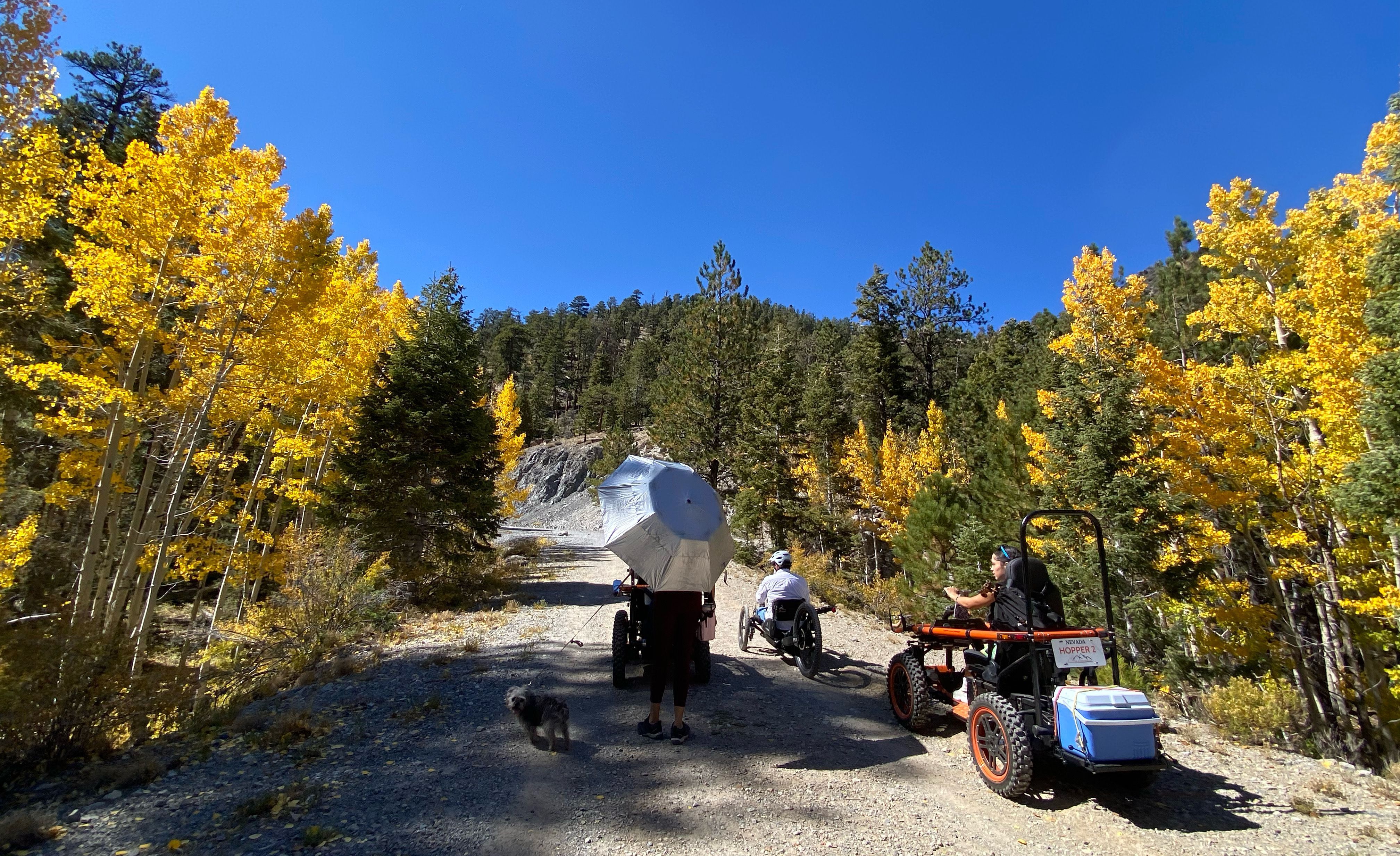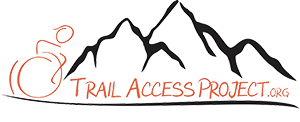Our mission
To create more meaningful access to nature for people with disabilities

Our history
Dr. Ed Price, a retired geologist and professor of the environmental sciences, had spent his life hiking out in the backcountry, even with a leg significantly weakened by a polio virus at the age of 3. Over time, the neurodegenerative effects of post-Polio syndrome made it more difficult for him to get out onto trails to experience them the way he was used to, and he started to look for trails he could do using a wheelchair in many of the public lands visited around the US. It was hard, if not impossible or even sometimes dangerous (especially with misleading signage about what constitutes an "accessible trail" in some likely well-meaning parks!) When he would ask park rangers where he could go in his wheelchair, he'd often get a "sorry!" or led to a token trail around the visitor center, not even out of eyesight or earshot of the parking lot. He knew there was major room for improvement in the outdoor experiences available to people who use wheelchairs and other adaptive equipment to get around. He founded Trail Access Project in 2015 with the goal of creating more meaningful access to nature for people with disabilities.
We began our work for the disability community with a federal grant in 2017 to assess hiking trails in federal lands surrounding Las Vegas for their accessibility characteristics. While assessing the closest to "accessible" trails at Lake Mead National Recreation area, Red Rock Canyon, and the Desert National Wildlife Refuge, we never encountered a single person with a visible disability. Was there anywhere in these amazing places that they could immerse themselves with the quiet natural setting--the reason those parks exist? We realized we needed a way to get people out onto trails now, without waiting out the long timelines often associated with trail improvements, and so we began applying to grants to fund a variety of adaptive trail equipment and started hosting events out on trails!
We are committed to building the Las Vegas area’s first and only nonprofit outdoor adaptive recreation program getting people with disabilities–and their friends and family who are hiking/traveling with them–beyond the “handicap” parking spot, beyond the accessible bathroom, actually immersed within the natural setting and within the reason the parks exist–both locally in town and in Southern Nevada’s special natural places, such as Red Rock Canyon, Lake Mead, and the Spring Mountains (Mount Charleston).
TAP’s work includes partnerships with the local, state, and federal park and land managers to increase access to the trails themselves through trail improvements, as well as hosting group adaptive hiking events on existing southern Nevada trails using our fleet of specialty trail wheelchairs and adaptive equipment. Many of our participants have paraplegia, partial quadriplegia, and traumatic brain injuries, and we also have long-standing relationships with local neurorecovery centers and post-polio groups.
